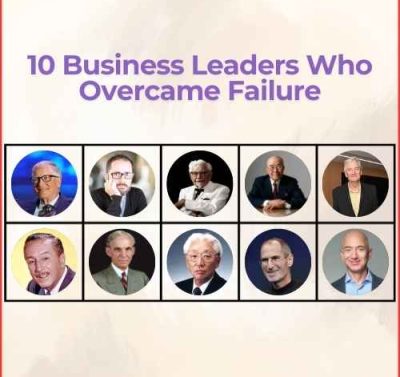In a Twitter conversation, Zoho CEO Sirdhar Vembu outlined how India can create globally competitive businesses like Apple, Google, Pfizer, Samsung, Honda, Boeing, Siemens, TSMC, or Huawei.
He asked, “Why are these firms so crucial to their host countries? ” in a Tweet. Is India on the right track to creating these businesses? I’ll delve into these inquiries.”
He wrote, “These enterprises are tremendously vital to their host nations because they encapsulate within themselves the cutting-edge know-how and R & D skills necessary for modern living and nationhood,” in response to the question, “Why are these companies so important to their host nations? The most important R&D takes place in these businesses.”
“These enterprises pay significant taxes to their host countries through both their well-paid employees and directly as corporations, and they also enjoy a disproportionate share of economic value added and earnings (relative to their direct effect on employment). That is the reason, he continued.
Post Link:
Vembu provided an explanation of how India may create such businesses in another tweet, writing, “Now let me come to the “how.” India’s private sector must make significant investments in R&D if it hopes to create such businesses. There isn’t another option. Government should encourage and influence businesses to make R&D investments. Academic research and industrial R&D are not the same thing.
According to Vembu, India needs to invest extensively in R&D in the private sector if it wants a $30 trillion economy. “Investments in private sector R&D yield significant returns. High GDP growth and high GDP per capita reflect such aggregated private sector profits. If we want a $30 trillion economy, we must make significant investments in R & D in the private sector. One point plan!” he penned.
Further elaborating on how trained workers will arrive to staff them when the private sector invests in R&D.
“Where will locate the skilled personnel to staff private sector R&D?” he asked in his essay. When the private sector makes significant investments in R&D and communicates its strong commitment, bright individuals stay at home. If we build it, they will come. Similar to how Zoho has done it, businesses find ways to develop and nurture talent.
Vembu added that given the current trend, India is not likely to produce such massive corporations because the private sector is not investing enough in R&D. He did, however, emphasize that businesses need to develop an R&D-driven culture and mentality.
And finally, is India developing these kinds of businesses? On the current course, no. The private sector in India does not make enough investments in R&D. We don’t have a company culture or way of thinking that is R&D-driven. First, we must establish the culture. Sure, we can “He composed.
One person commented on his article, saying, “If you leave Pfizer & Google from this list, the remainder all have one thing in common, namely, their core skill is making good hardware. The creation of an ecosystem that fosters the emergence of world-class hardware companies should be our primary goal.”
“Adding to your point, We do not have advanced know-how in R&D of Software World,” another person remarked. We use western-style software tools like libraries, frameworks, OS, and so on. The software industry is undergoing a tectonic upheaval thanks to companies like DeepMind and OpenAI. Agreed, currently, no.”
“Great thread, Coming to India, CEOs consider firm as money making machine, they are not taking risk to spend in R&D or invest in people, also labour laws are awful in India, govt doesn’t care about employees, 90 days notice period, bond for freshers, we still in 1980s,” remarked another.”
“A culture reset is necessary. Because education is the foundation upon which all other issues are built, we must begin there. We are trained to solve problems without thinking. We must invest in our children’s education and foster an R&D mindset in them if we want to foster a culture that values research “Added a different user.
Vembu had previously stated that the nation needs a corporate mandate on R&D comparable to CSR to encourage a technology innovation culture that will aid in the development of crucial technologies.
The Padma Shree recipient and CEO of India’s first billion-dollar IT company claimed that the nation lacks a culture of in-house R&D and emphasized that merely having manufacturing facilities for major international tech firms like Apple will not result in “high income jobs” for the general populace.
“For India, a corporate requirement similar to the two percent CSR mandate is required, requiring corporations to spend one or two percent on R&D. This investment has a high potential “In a brief interview with PTI, Vembu stated.
Despite the government’s expansion of CSR to include R&D, he continued, there is currently no national mandate for business research.
Vembu likened the scenario with Mexico, where there are factories for US firms but they don’t offer much value, when asked about India’s success in attracting Apple’s investment to produce in India.
He questioned, “We (India) have to know what is a long-term model for us.
“We require those factories, but we also require R&D in order to “own the technology,” as we require high-paying jobs in order for people to come here (India). The economy will then start to benefit from the income. The economic benefits of simple factories without intellectual property are limited “explained Vembu.
Ashwini Vaishnaw, the Union Minister of Information Technology, had previously declared that the largest plant for manufacturing Apple’s iPhone will be built in Hosur, close to Bengaluru. There will be 60,000 workers in one factory.
Vembu stressed the importance of creating a culture of research “R&D jobs have significant multiplier impacts. These occupations are necessary for us.” According to Vembu, India needs to concentrate on design, development, and manufacture for the global market.















